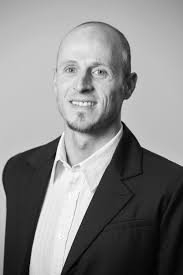Australian Fabian Society Highlights Wealth Inequality
Saturday 20 April, 2019 Written by Simon Collyer
The level of wealth inequality in Australia is vastly underestimated by the public despite being a top priority for many, as new polling finds nearly three-quarters of Australians are unaware of the disparity in wealth distribution.
Research commissioned by the Australian Fabians reveals that 73% of people underestimate the level of wealth inequality in Australia, where the wealthiest 1% hold wealth equivalent to the poorest 70%.
Rectifying this inequality was nonetheless seen by many as a vitally important issue, with 43% claiming it should be a top priority for the Government and 69% believing that raising the minimum wage to a living wage would be an effective measure of achieving this.
The gap between rich and poor is damaging our society. Damaging economies around the globe. What is worse is that the gap is growing.
The world’s billionaires increased by 12 percent or almost $3.5 billion AUD a day last year (£1,926,789,441.61GBP). At the same time the poorest half of humanity saw their wealth shrink by 11 percent.
The facts as bullet points:
- The gap between rich and poor is damaging our society. Damaging economies around the globe. What is worse is that the gap is growing.
- The level of wealth inequality in Australia is vastly underestimated by the public despite being a top priority for many, as new polling finds nearly three-quarters of Australians are unaware of the disparity in wealth distribution.
- Our Research reveals that 73% of people underestimate the level of wealth inequality in Australia, where the wealthiest 1% hold wealth equivalent to the poorest 70%.
- Rectifying this inequality was nonetheless seen by many as a vitally important issue, with 43% claiming it should be a top priority for the Government and 69% believing that raising the minimum wage to a living wage would be an effective measure of achieving this.
ABC comments, have your say below:


Image: Dr Nicolas Herault, Melbourne Institute of Applied Economic and Social Research at the University of Melbourne.
Dr Nicolas Herault, Melbourne Institute of Applied Economic and Social Research at the University of Melbourne.
Nicolas is an expert on labour economics, tax and transfer policies, homelessness, and welfare economics. He will discuss who is affected by the economics of inequality and why.
Event Series: What do we mean by Equality?
Everywhere we are surrounded by indications of increased inequality in Australian society. But what does "inequality" mean? Are we strictly talking about economic differences in income and wealth? Or do other cultural forms of inequality, eg, class, race, gender, age or disability, also intersect with income and wealth, and if so, how? And what might be the keys to fixing such a complex and politically charged problem as inequality?
These questions form the basis of Victorian Fabians' Autumn Series of events.
Event 1: Inequality of Wealth and Income (Economic)
The causes and solutions to economic inequality are as varied as the number of economists there are to express them. However there is some consensus developing around the idea that disparities in wealth and income deferentially contribute to overall economic inequality, and that this inequality is growing.
Explanations for increasing economic inequality somewhat depend on the politics of the person explaining. Some see globalisation or neoliberal economics as the problem while others see the dismantling of trade unions and diminishing labour power as the culprit. Others have blamed increasing automation eating into routine occupations at many levels of the workforce, including and beyond manufacturing. Piketty suggests that wealth, not income per se, is the problem. Wealth has a tendency to concentrate into a few hands except during times of war and disaster. The wealthy can act to channel more wealth their way. The remedy he suggests, is active redistribution. However in a later essay he says the same causes do not explain income inequality.
Two prominent researchers whose work revolves around understanding economic inequality give insights on how can we explain economic inequality of wealth and income and what can we do to ensure it does not result in ever greater economic and social disparities.
Leave a comment
Make sure you enter all the required information, indicated by an asterisk (*). HTML code is not allowed.
Join
FREE
Here










